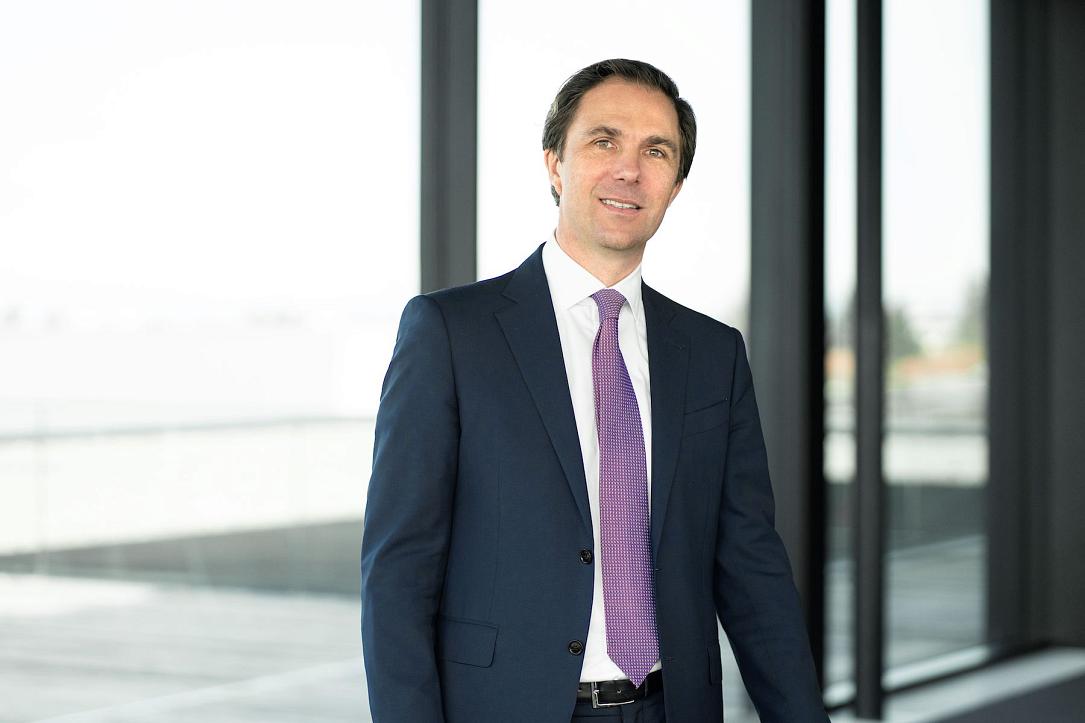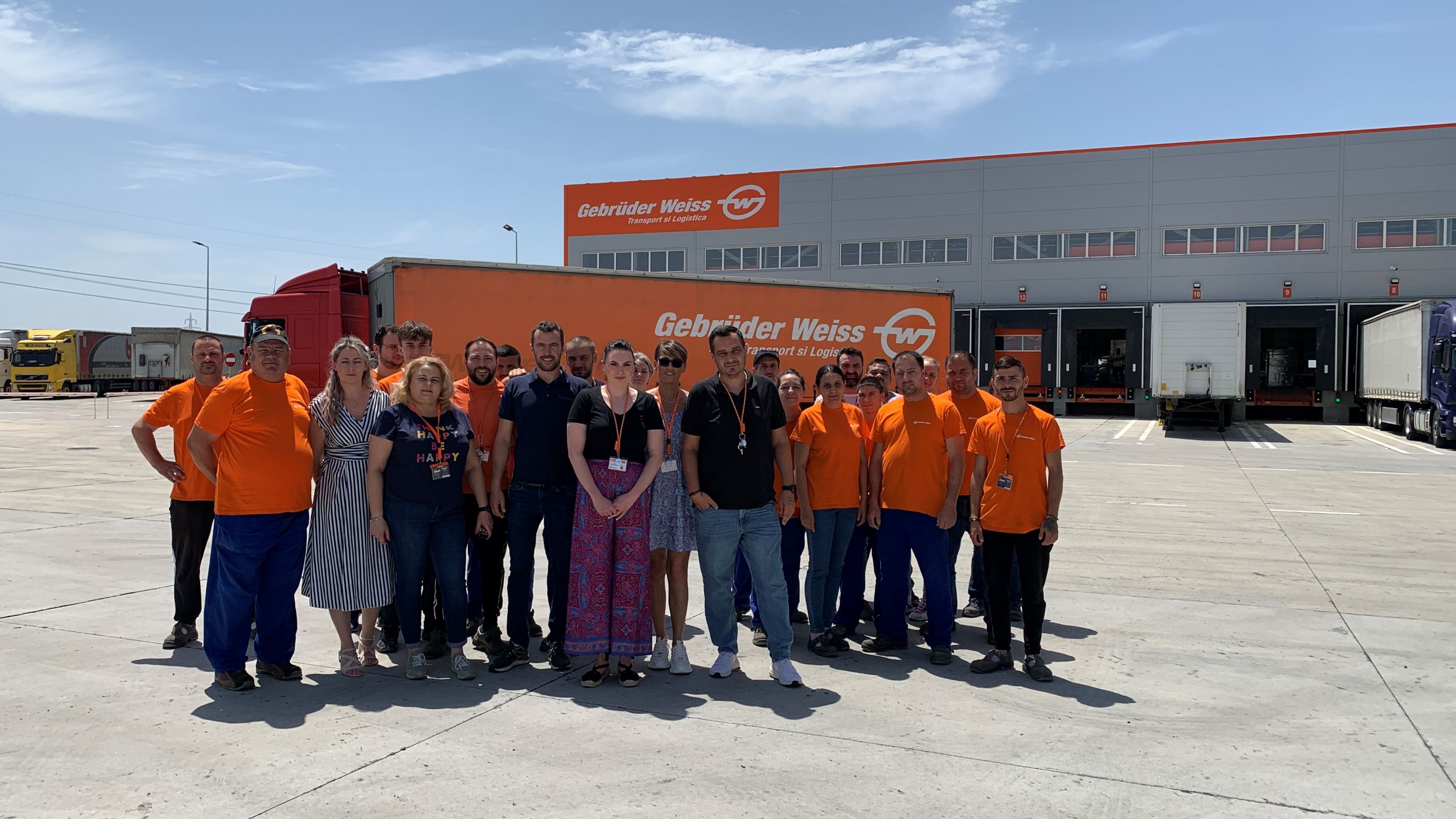Wolfram Senger-Weiss, CEO of Gebrüder Weiss: Our focus is on Central and Southeastern Europe, and Romania is the biggest market in the region



The international transport and logistics company Gebrüder Weiss recently celebrated its 30-year presence in the Romanian market by opening a new logistics hub near Bucharest after a EUR 20 million investment.
Gebrüder Weiss now operates 13 locations in Romania, spread out in the country’s main economic areas and offering 100,000 sqm of warehouse and logistics surface, more than in any country in the region. The group’s investments in the country over the last 30 years amounted to almost EUR 90 million (adjusted for inflation).
In the past year, the company’s 700 employees handled approximately 1.1 million shipments and reached roughly EUR 94.3 million in turnover in 2023, an exponential increase from its 2005 turnover of EUR 3.4 million.
From its locations in Romania, the logistics provider operates road transport to Germany, France, Hungary, and the Czech Republic, among others, and manages air and sea transport to destinations around the world. Clients include international companies from various industries such as the automotive, technology, and consumer goods sectors.
Headquartered in Lauterach, Austria, Gebrüder Weiss boasts a 500-year history stemming from the so-called Lindau Couriers that connected Milan and the German town of Lindau. Today, the company, which is still family-run, has approximately 8,600 employees and 180 of its own locations, mainly in Central and Eastern Europe. In the most recent financial year, it achieved an annual turnover of EUR 2.46 billion.
Gebrüder Weiss’s objectives include increasing sustainability and regional consolidation. The company has also set a goal of becoming climate-neutral by 2030, for its owned facilities.
Wolfram Senger-Weiss, CEO of Gebrüder Weiss since 2019, sat down with Romania Insider for an interview about the company’s past challenges and future plans. He highlighted the central importance that Romania, the Black Sea, and Central and Eastern European regions hold for the group.
More information in the interview below:
This year, you celebrate 30 years since Gebruder Weiss entered the Romanian market. How important is Romania today for your group and why?
Wolfram Senger-Weiss: Romania is very important for us. It is our biggest market in the region. It has the largest population in the region and also shows great potential for further industrial development.
You inaugurated a new logistics terminal in Romania. Where does Romania and the wider Black Sea region fit in the group’s long-term strategy?
Wolfram Senger-Weiss: This region is our focus. Other companies have other focuses, but Gebrüder Weiss is focused on Central and Southeastern Europe, towards Central Asia, this is our main field of development. Of course, we have good connections in Western Europe, in Germany, France, all the other countries, with our partners’ operations or our own, but with our own terminals we are very strong in this region.
When we decide to stay in a place long term, we also decide to invest our own money. The first investment in Bolintin-Deal was in 2009, and we continue to invest in locations that are good for us. For Bucharest, we have decided it was important to cover this metropolitan area from 2 locations. I understand the traffic is a hassle here, I also experience it when I visit, so I can imagine how the drivers feel when they have to do the job every day. This way, we can offer logistics and supply chain products from both locations equally.

How has the geopolitical context, marked by the war in Ukraine, impacted the logistics market and your business in this region? Do you see more threats or opportunities from this situation?
Wolfram Senger-Weiss: The impact of the Ukraine war on the sector comes mainly from what happened to energy supply, availability, and prices. I think the region, all around from Romania to Germany, all these countries saw exploding energy prices, and this was very bad for industrial development. Costs went up artificially, higher than in all other places in the world, bringing a competitive disadvantage. This, I’d say, was more or less the biggest impact we have had from this war. Moreover, there is less exchange, especially with Ukraine as a market, but that is picking up again. In addition, there is all this weapons production, which is supporting industrial development in some areas.
Digitization, the rise of AI and the pursuit of sustainability are some of the forces driving change in the business world today. How are these factors changing the logistics sector and your business?
Wolfram Senger-Weiss: The whole ecological issue is mainly driven by the European Green Deal and the political wish to change things - also the fact that people understand that we have to change things. We have a well-developed system, when you look at the trucking side, with diesel and all the supply and so on, at marginal cost. To go into a new [energy] environment with any other form will need a lot of investment and will bring higher prices at least for the first couple of years.
This change is driving the industry, but it is difficult because we [the logistics industry] are not producing trucks, we are not specialists in technology, and we are also not responsible for the infrastructure in place. We are willing to test whatever there is out there, we allow our customers to experience new possibilities, we can try to drive the change, but only with the available means. We are still missing a lot of the means, and it has to work on a business case. We can have state subsidies to support the business case - it's not ideal, but it might help us to get there because, in the end, we need to have a business case. Otherwise, there will not be a big change.
Digitization goes hand in hand with sustainability. The more digitization takes place, the fewer resources are involved. We can use less paper, less energy, the routing of the trucks can be optimized and so on. This will also help on the ecological side.
Digitization in the industry goes in two directions. The first is optimizing our production, which helps on the cost side. The second relates to communicating with the customer. In this respect, the industry was driven by the integrators, the parcel services. People already know that transparency works. On the B2B side, it is not that common. Now, however, it is being applied more and more. Gebrüder Weiss especially was one of the first movers, with our GW Portal, to give transparency to our customers - where the goods are, how much is available, what worked well, what didn’t, red, green. In the B2B world, this is actually new, and it is very interesting for our customers, because it is helping them to have more transparency in their supply chain.
When did you visit Romania for the first time and how do you perceive things have changed in the country since your first visit?
Wolfram Senger-Weiss: For me, one of the negative parts about Romania has always been the infrastructure. It is difficult to make a 24-hour delivery in a country with poor infrastructure. I understand that it takes a very long time to improve the infrastructure. When I first arrived, before Romania became a member of the EU, probably in 2005, I understood there were still big steps to make. I expected a lot of development to happen after that, and I was surprised it didn’t happen that way.
When I visit now, I feel that there is more going on, so the focus is going in the right direction. What is fascinating is the development of the logistics industry in the country. If you are in cluster areas, it is incredible how much they have developed, especially when you look at the western parts of Bucharest. In the beginning, even around our first location in Bolintin-Deal, there was nothing there, just agricultural fields and one highway.
Of course, I also remember the hour-long taxi rides and traffic jams. The nightlife in Bucharest, however, has always been nice.
*This interview was created by Romania Insider for Gebrüder Weiss.